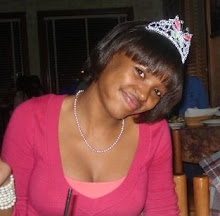From the Lyrical Ballads in 1798, I looked at two poems in particular: "We are Seven" and "Lines Written in Early Spring." I think that we are expected to take the young girl's opinion about her number of siblings as naivete. In her conversationg with the narrator she speaks of how there are sven of them, including her deceased brother and sister, who lie near her mother's home. When the narrator tries to explain to her that there are only 5 of them now, she refuses saying, "Nay, we are seven!" (201) But are we really expected to believe that simply because two of her siblings have left this world that they don't exist? Is it the young girl who is naive or is it the narrator himself? I think this poem deals with questions Wordsworth had to deal with after the death of his own mother at such a young age. Either he could remove his mother from his memory forever, ignoring her existence, or he could act as if she would always be his mother - even in death. It is easier to forget than to remember, but that doesn't make it better.
From "Lines Written in Early Spring" I find it ironic that Wordsworth can be "in that sweet mood when pleasant thoughts Bring sad thoughts to the mind" (201). It seems like such a "sweet" mood would make someone think good thoughts as opposed to unpleasent or sad ones. When Wordsworth goes on, to talk about the things that "man has made of man," he then proceeds to talk about the beautiful things of nature around him that find pleasure in simply being alive(201). I think what Wordsworth is trying to portray, through his own thoughts on life, is that it is our own fault that we aren't able to appreciate life as much as the flowers, birds, and twigs that he makes reference to. We do it to ourselves and to each other by taking little things, like the air that we breathe, for granted. And rightly so, Wordsworth is just in his question: "Have I not reason to lament What man has made of man?" (202)
From the preface of the second edition of Lyrical Ballads, I really liked reading Wordsworth's section titled [What is a Poet?] I think that a lot of the time in studying poetry we get overwhelmed (students and teachers both) in understanding the correct structures and rhyme schemes and such that make up the poem and end up not focusing as much on the actual words and on the meaning that the reader perceives. "Poetry... [is] carried alive into the heart by passion; truth which is its own testimony, which gives strength and divinity to the tribunal to which it appeals, and receives them from the same tribunal" (211). This follows the idea that poetry is meant to be left to the reader for their own interpretation and feelings about what they are reading. This is what he is referring to when he speaks of the tribunal; the reader receives strength or knowledge from what they've read and they give strength to the poem itself, the poet, and the topic of poetry when they enjoy it or take meaning from it. It shouldn't matter if the poem is perfectly organized and follows the correct iambic pentameter with abab rhyme scheme. All that matters is that it invokes some kind of meaningful passion in the reader.
Thursday, June 4, 2009
Subscribe to:
Post Comments (Atom)

Jalisa,
ReplyDeleteI enjoyed reading your comments and observations about these specific poems and passages from Wordsworth. I like the way you focus and delve into particular passages, but I would like to see you make more of a connection between them. It seems almost like three unconnected observations here.
Jalisa,
ReplyDeleteI like how you connect the little girl in "We are Seven" to Wordsworth's personal life. I had forgotten that he had lost his mother at such a young age, and I think you are right about his talking about loss for that reason. Writers write about what they know.
I thought your piece on how Wordsworth could be in a "sweet" mood and yet think sad thoughts was interesting. I missed the irony, I guess. I took it more to be a sort of bittersweet meaning of "sweet" rather than a sweet/happy meaning.
I agree also with your thoughts on the various approaches to poetry. I think great poetry comes from emotion, not from someone just trying to fill up lines and fit a formula.